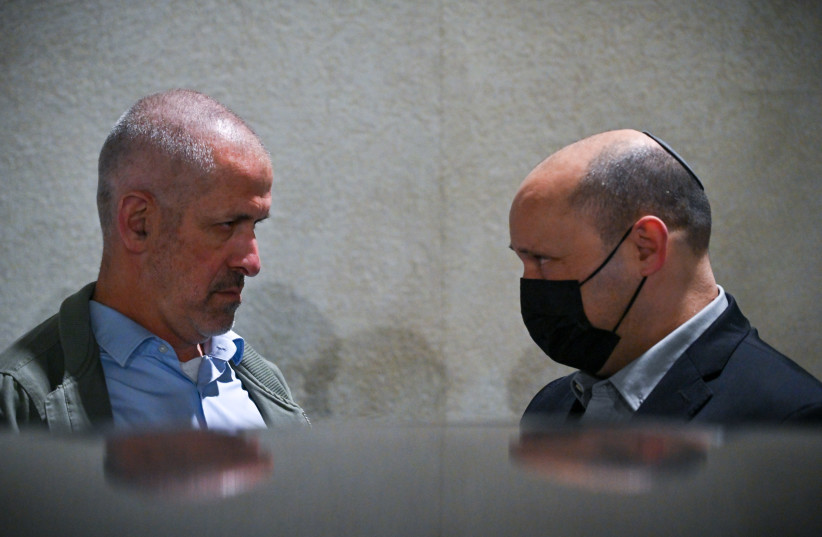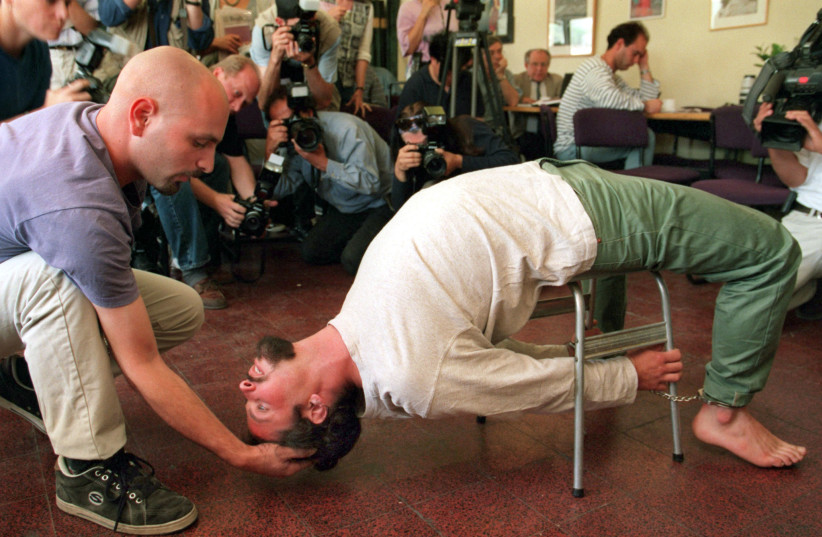The head of an NGO explained in a recent interview why it filed a war crimes complaint before the International Criminal Court this month against the Shin Bet Israel Security Agency, for allegedly torturing Palestinian detainees.
Public Committee Against Torture in Israel (PCATI) Executive Director Tal Steiner said that her organization finally decided to go to the ICC with 17 different case files after multiple factors fell into place.
First, in 2017 the High Court of Justice issued multiple rulings closing the door on various avenues which PCATI had thought could lead to judicial intervention. This included significantly broadening the “ticking bomb” defense for permitting the security agency to use “special interrogation methods” when interrogating detainees.
PCATI did not turn to the ICC for another five years.
So the next important element for Steiner came in March 2021, when the ICC switched from a six-year long preliminary review of war crimes allegations against Israel to a full-fledged criminal probe.

Finally, two decisions by the Justice Ministry unit for overseeing complaints against the Shin Bet were handed down in January and April 2021.
According to Steiner, the abuse of the Palestinian detainees in question was so clear in these two cases that even when they were closed without an indictment, no more proof was needed that the ministry would never take alleged torture of Palestinians seriously.
These two cases were the only ones which led to full criminal probes, despite 1,300 filed complaints filed over 20 years.
Shin Bet agents 'gone too far'
In one of the two cases, the Palestinian detainee, accused of a terror murder, almost died during his Shin Bet interrogation and was rushed to the emergency room, where his life was saved.
The ministry found that the agents might have gone too far, but that the danger to life came from an unexpected preexisting health condition and that since their actions were to stop a future attack, they were not criminal.
Critics disputed the claim that the interrogation had anything to do with disrupting any concrete imminent future attack, charging that the Shin Bet was so aggressive that it had culpability even if there was a medical condition.

THE SECOND CASE saw the security forces perform a vaginal and anal search for a SIM card they suspected a Palestinian woman was concealing on behalf of Hamas, despite not having clear authority for doing so and no imminent danger present. In fact, she had hidden the SIM card in her room, where they later found it. But a SIM card is a standard intelligence item which certainly did not justify such an invasive search. The reason the ministry cited for not filing charges was confusion among those involved about who ordered the search.
PCATI said that they are waiting for the ICC to respond, but that if the response is positive, they will give them the names of the allegedly tortured detainees, with a commitment to keep their identities hidden from the public.
ICC's jurisdiction
Each of the 17 cases postdates the ICC’s jurisdiction over Palestinian issues, starting in 2014 and involved allegations of beatings, use of the body-bending “frog” position, sexual harassment, extreme sleep deprivation and threats against detainees’ family and their religious beliefs.
Steiner said that the detainees have rights under international law and cannot be tortured, whether or not they are suspected of a crime.
She stated that PCATI looks to aid any detainee who may have been tortured, including Jewish-Israelis like Amiram Ben-Uliel, who was convicted in the 2015 arson terror murders of the Palestinian Dawabshe family from Duma.
Ben-Uliel’s is not one of the 17 case files sent to the ICC, but that is more related to the technicality that Israel itself has not signed on to the court's Rome Statute.
Next, she was questioned about new ICC Chief Prosecutor Karim Khan, who has made a number of pragmatic decisions, closing cases such as the one against the US for torturing detainees in Afghanistan to avoid a political deadlock.
“I believe he will act professionally and believe he will make the right decision,” she said.
ASKED IF she or her organization have faced new punitive consequences from the Israeli government or from activists, she said not to date. She views her actions as having been for Israel’s sake – by trying to motivate it to act at a higher ethical level.
Moreover, she said that PCATI’s filing with the ICC did not signal an end to contact with the ministry or the courts.
Rather, she said that regular dialogue and contacts she has held with the ministry oversight unit chief Guy Asher have continued into the last couple of weeks even after PCATI filed the ICC complaint.
Steiner said she would also still continue to testify before Knesset committees about the issue.
For example, it is important to criticize the Knesset for not including a clear prohibition on torturing detainees in a new proposed basic law about defendants’ rights.
In contrast, B’Tselem decided a few years ago to limit cooperation with the Israeli authorities.
The High Court has prohibited torture since 1999, but she said the absence of a statute on the issue has helped the Shin Bet wiggle out of liability many times.
Although she did compliment Asher on speeding up the response time for new complaints, she said that the average response time, including regarding older files, was still four-and-a-half years and the ministry has still rejected every complaint.
